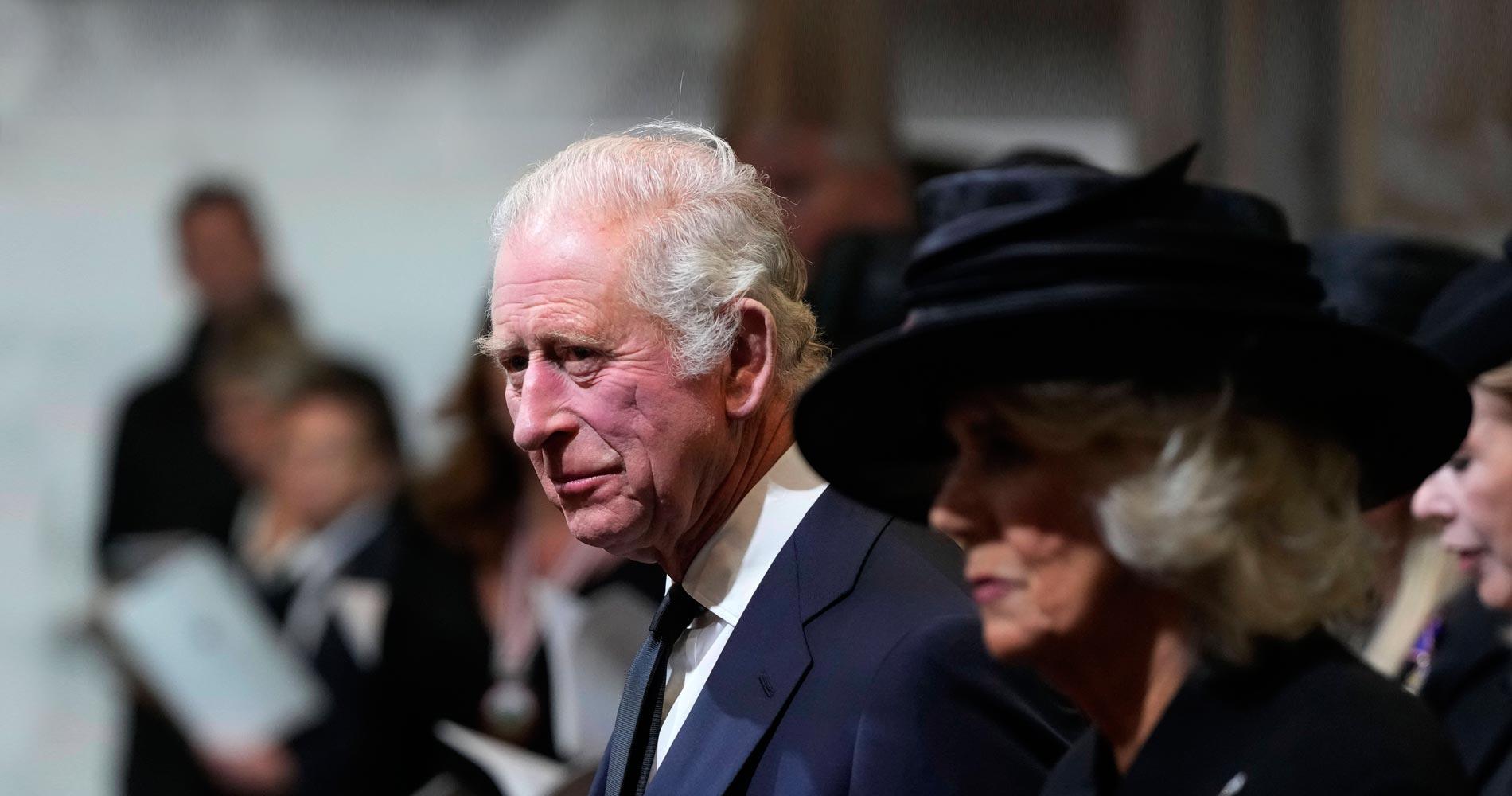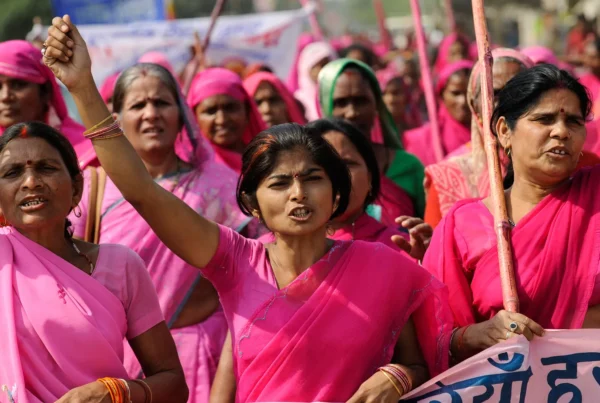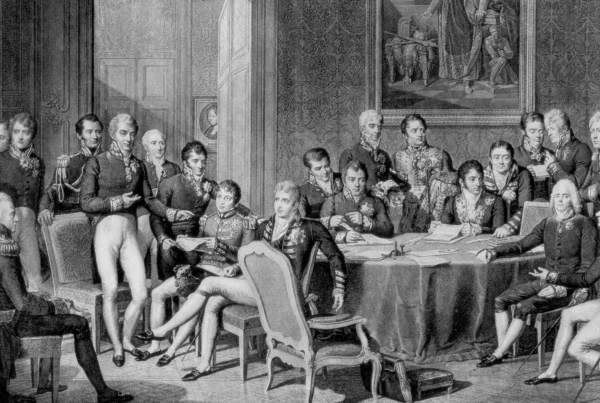On 6 May 2023 Charles Windsor will be crowned King Charles III, only days after a national census demonstrated the popularity of the British monarchy to be at an all-time low. Can Charles and Queen Camilla persuade the British public that the monarchy still has a place in Britain’s diverse society. And can they possibly meet the high standards of service and devotion to the UK demonstrated by the late Queen Elizabeth II?
David Deegan, 5 May 2023
German version | Spanish version
On 28 April 2023 a survey by the National Centre for Social Research (NatCen), the largest independent social research institute in the UK, showed that only 30% of Britons thought the monarchy to be “very important”, the lowest proportion since NatCen began gathering data in 1983.
Guy Goodwin, the chief executive of NatCen said: “Important national events and celebrations, such as jubilees, marriages and births, have a clear and positive effect on society’s views towards the monarchy”. Yet, despite the imminent coronation of Charles III, 45% of respondents surveyed said that the monarchy should be abolished, was not at all important or not very important.
To be crowned King Charles III on Saturday 6 May in Westminster Abbey, it will be interesting to see how, during his reign, Charles Windsor will try to demonstrate to those disillusioned Britons that the 1000-year-old monarchy is still relevant and important.
His attempts will begin with his coronation. The reigning monarch is simultaneously the supreme governor of the Church of England, but the latest UK census (released in November 2022) showed that less than 50% of the population describe themselves as Christian. Previously, coronation ceremonies have been solely the domain of the Church of England. For the first time, the ceremony includes Buddhist, Hindu, Jewish, Muslim and Sikh leaders.
Archbishop Justin Welby, spiritual leader of the Church of England, stated “The service contains new elements that reflect the diversity of our contemporary society.” The ceremony will also include female bishops for the first time, as well as hymns and prayers sung in Welsh, Scottish Gaelic and Irish Gaelic. The congregation will also be invited to say “The Lord’s Prayer” in the language of their choice.
A concert at Windsor Castle on Sunday 7 May will include a performance by “The Coronation Choir”, made up of a diverse group of community choirs and amateur singers from across the UK, such as refugee choirs, NHS choirs, LGBTQ+ singing groups and deaf signing choirs.
Charles is no stranger to shifts in public opinion. His wife and soon to be Queen, Camilla Parker Bowles, has had a turbulent relationship with the British public. Her affair with Charles during his first marriage to Princess Diana led perceptions of her, i.a., as a threat to the future of the British monarchy. She has been vilified by the British tabloid press and blamed for the collapse of the marriage of Charles and Diana.
It is uncertain how Charles and Camilla will act in order to effect a transformation in public opinion, but following the death of Princess Diana in 1997, royal correspondents noted that Camilla had sensibly maintained an extremely low profile, and she and Charles did not wed until 2005.
Even after they were married it was unclear if Camilla would be allowed to hold the title of “Queen” given the potentially tenuous relationship with the British public. However, Camilla consistently demonstrated her commitment to royal duties, and slowly but surely won public favor. Her charity work promoting literacy was particularly well-received by the public, and during the COVID-19 pandemic she launched two reading lists and a public book club.
In February 2022 Queen Elizabeth II declared that it was her “sincere wish” for Camilla to be “queen consort” after Elizabeth’s death, which was a very overt demonstration of her acceptance of Camilla’s position at Charles’ side. However, the official royal invitation for the coronation day surprised many royal correspondents as Camilla was called “Queen Camilla,” not “Queen Consort Camilla,” and has been viewed as a deliberate ‘promotion’ by Charles.
Charles’ efforts to “sell” the monarchy as important to the British public will not be helped by the cost of the coronation. Unlike royal weddings, the coronation is a state occasion, which means the UK government, and therefore the British taxpayer, must cover the costs.
The cost of staging the Queen’s Coronation in 1953 was £1.57 million, which equates to around £47 million in today’s money. Charles was reported as wanting to hold a coronation ceremony that was less expensive than his mother Queen Elizabeth II because of the current cost-of-living crisis. However, the original estimate was £100 million, and weeks before the event a proliferation of security threats and planned domestic protests catalysed a security operation which was said to push the final total to around £250 million.
Will the UK government be able to recoup their huge investment in the coronation through a boost in tourism and the over commercialization of the coronation in many other areas?
If Guy Goodwin of NatCen is correct and the coronation will have boosted the popularity of the monarchy, how long will this endure? If previous UK public mood swings are anything to go by the pendulum of public opinion is likely to be highly sensitized to the King’s future moves.
Charles will have a great challenge to fill the vacuum left by his beloved and highly respected mother, Queen Elizabeth II, who throughout her long life demonstrated her devotion to her subjects and country through actions rather than words. She is, therefore, the standard by which the fate of the monarchy will inevitably be judged.






